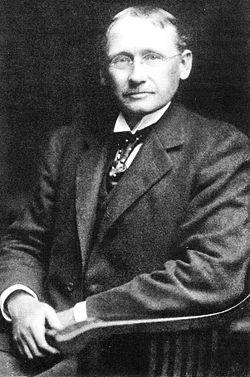
Back إدارة علمية Arabic Taylorisme Catalan کارگێڕیی زانستی CKB Taylorismus Czech Taylorisme Danish Taylorismus German Τεηλορισμός Greek Tajlorismo EO Taylorismo Spanish Taylorismo EU

Scientific management is a theory of management that analyzes and synthesizes workflows. Its main objective is improving economic efficiency, especially labor productivity. It was one of the earliest attempts to apply science to the engineering of processes in management. Scientific management is sometimes known as Taylorism after its pioneer, Frederick Winslow Taylor.[1]
Taylor began the theory's development in the United States during the 1880s and 1890s within manufacturing industries, especially steel. Its peak of influence came in the 1910s.[2] Although Taylor died in 1915, by the 1920s scientific management was still influential but had entered into competition and syncretism with opposing or complementary ideas.
Although scientific management as a distinct theory or school of thought was obsolete by the 1930s,[clarification needed] most of its themes are still important parts of industrial engineering and management today. [citation needed] These include: analysis; synthesis; logic; rationality; empiricism; work ethic; efficiency through elimination of wasteful activities (as in muda, muri and mura); standardization of best practices; disdain for tradition preserved merely for its own sake or to protect the social status of particular workers with particular skill sets; the transformation of craft production into mass production; and knowledge transfer between workers and from workers into tools, processes, and documentation.
- ^ Mitcham 2005, p. 1153 Mitcham, Carl and Adam, Briggle Management in Mitcham (2005) p. 1153
- ^ Woodham 1997, p. 12